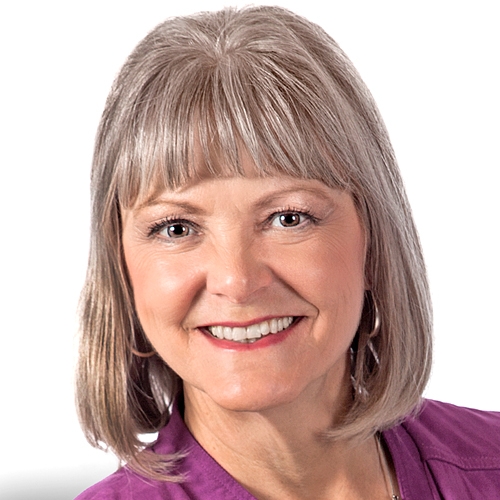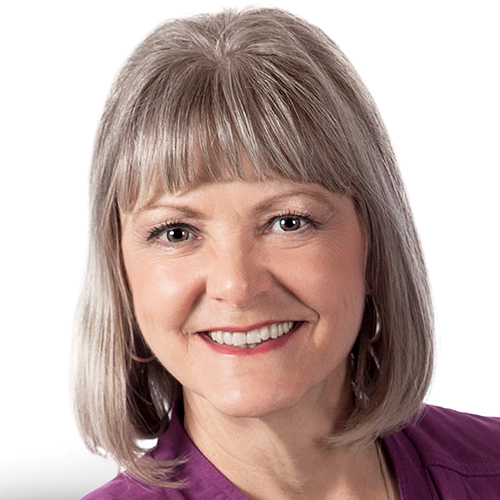 IBCLC Detailed Content Outline: Development and Nutrition Focused CERPs - Section I
IBCLC Detailed Content Outline: Development and Nutrition Focused CERPs - Section I
Access CERPs on Development and Nutrition for the IBCLC Detailed Content Outline recertification requirements. Enjoy convenient on-demand viewing of the latest Development and Nutrition focused IBCLC CERPs at your own pace.

Working With Families Feeding Beyond 12 Months: Offering Support With Confidence

After a career as a primary school teacher and Deputy Headteacher in central London, Emma trained with the Association of Breastfeeding Mothers, qualifying as a breastfeeding counsellor with them in 2007 and continuing with them as their trustee and chair. Emma first qualified as an International Board Certified Lactation Consultant in 2011. She has supported families at groups in North London for 14 years as a volunteer and has a small private practice. Her book, “You’ve Got It In You: a positive guide to breastfeeding” was followed by “The Breast Book: a puberty guide with a difference – it’s the when, why and how of breasts” (published by Pinter and Martin). Her articles have been featured in print and online including on the UNICEF UK Baby Friendly Initiative website. Her article, 'The dangerous obsession with the infant feeding interval' is her most popular. She has two children and lives in London.
This session focuses on supporting parents who are breastfeeding/chestfeeding beyond 12 months. Many of us live in countries where breastfeeding beyond 12 months is not the norm. When it does happen, it may not happen openly. Parents are often feeling increasingly isolated and may be dealing with lack of support from family and friends. There can be further challenges such as new issues with positioning and attachment, conversations with employers and health professionals, dealing with family break-up and thinking about new pregnancies. Parents continuing to feed older children may not always feel able to reach out to local breastfeeding support services that often focus on the newborn period. You will be encouraged to reflect on your personal approach to supporting feeding older children and whether you have any unconscious or conscious bias that may affect your work. The session will give you confidence to discuss the value of continuing to breastfeed with families and colleagues and be able to offer a variety of support.

View Details / Enroll

“The Little Engine That Could”: Breastfeeding Journeys of Very Premature Babies on Home Tube Feeds

Karen Lasby leads a specialized nursing team in post-discharge follow-up of extremely premature infants and their families in Alberta, Canada. She has presented locally, nationally, and internationally on the topics of premature babies, neonatal oral feeding, and NICU-to-home transition, including the 2019 and 2022 GOLD Neonatal Conferences. She has been the co-investigator in several research studies examining outcomes for very low birth weight infants and has published articles on maternal work in the NICU, neonatal transition, and gastroesophageal reflux. An educator for nearly thirty years, Karen has taught, written instructional material, and produced online neonatal nursing courses. Formerly the president of the Canadian Association of Neonatal Nurses, she served on this national board for twelve years, and on the board of the Council for International Neonatal Nurses for three years. Karen’s work has been recognized by the Canadian Institute of Child Health and College and Association of Registered Nurses of Alberta. Karen is the co-author for the parent book, "Preemie Care: A guide to navigate the first year with your premature baby".
Noriko Woods is a member of a specialized nursing team in post-discharge follow-up of extremely premature infants and their families in Alberta, Canada. She started her Level 4 NICU RN career in Kanagawa, Japan, trained and worked for 5 years before moving to Canada. She worked 5 years as a Level 4 NICU RN in Calgary Alberta before she started her current position at Postpartum Community Health Services, as a public health nurse. She became passionate about breastfeeding with her own experience with her first child in 2009 and obtained the IBCLC in 2011. She has been working with early postpartum mothers and babies to reach their breastfeeding goals as a Lactation Consultant in her community. She is passionate about supporting families to achieve positive feeding experience with a bottle and at breasts. She has been participating with various committees such as Calgary NICU LC group to revise the breastfeeding guidebook for NICU parents, Calgary Breastfeeding Matters Group annual conference committee, GOLD Neonatal Professional Advisory Committee.
Long NICU stays, invasive oral procedures, chronic lung disease, and gastrointestinal complications can contribute to a complex oral feeding journey for premature infants. Frequently, the NICU journey prioritizes bottle feeding over breast feeding. Breastmilk supply and transfer are challenging for mothers and infants born very premature. At the time of NICU discharge, most very premature infants remain fragile oral feeders with weak breast-feeding and bottle-feeding skills, and some require tube feeding support. Community-based breastfeeding support is often lacking, and breastmilk intake and direct breastfeeding diminish beyond discharge. The authors will highlight four remarkable case studies of very premature newborns who were discharged home on nasogastric tube feeding. All four babies had a complex oral feeding journey in the NICU with minimal opportunity to develop breastfeeding skills. Parent comments will be shared, including barriers and facilitators for breastfeeding. Take away messages will focus on helpful strategies to support families taking home a fragile feeder and progressing toward positive, enjoyable oral feedings and more importantly, weaning from tube support and advancing breastfeeding.

View Details / Enroll

“Zooming Ahead”; Post-NICU Discharge Very-Low-Birth-Weight Infant Follow-up Program Goes Virtual

Karen has worn a number of hats in her nursing career but always comes back to her passion for premature babies. Her background includes NICU nurse, transport nurse and NICU educator, rural nursing, staff development, pediatrics, pediatric intensive care, and community health. For over 20 years Karen has lead Calgary’s specialized “Neonatal Transition Team”, which she will talk about today. Karen has presented locally, nationally, and internationally and has also been co-investigator in several research and quality improvement studies examining outcomes for very low birth weight infants. For nearly 30 years, Karen taught, wrote instructional material, and produced on-line courses for nurses to earn a certificate in neonatal nursing through Mount Royal University. Karen is a past-president of the Canadian Association of Neonatal Nurses and served on this national board for 12 years, and on the international board of the Council for International Neonatal Nurses for 3 years. In 2019, Along with co-author, Tammy Sherrow, Karen published the book “Preemie Care: A guide to navigating the first year with your premature baby”.
Topic: “Zooming Ahead”; Post-NICU Discharge Very-Low-Birth-Weight Infant Follow-up Program Goes Virtual - [View Abstract]
Many preterm infants remain vulnerable following discharge from the neonatal intensive care unit (NICU). Health challenges persist beyond the NICU including respiratory illness, breastfeeding progression, bottle feeding incoordination, behavior and development issues, impaired growth, infrequent stooling, and gastroesophageal reflux. Preterm infants are up to two times more likely than full term infants to be hospitalized in the first year of life. Parents are challenged to transition their premature baby home and to keep them home!
Community-based, specialized follow-up services following NICU discharge have a powerful impact. The Neonatal Transition Team in Calgary, Alberta, Canada provides post-NICU follow-up for very-low-birth-weight infants and their families. The team consists of community health registered nurses with advanced skill in premature infant outcomes, feeding and neurodevelopmental assessment, and a consultation partnership with nutritional and feeding specialists. While home visits have been the backbone of this service, the team questioned the feasibility and acceptance of virtual care and completed a three month quality improvement pilot. This virtual care pilot demonstrated optimization of health-care resources by providing safe, high-quality care at a reduced operational cost. The pilot was instrumental in the team’s management during the SARS-COVID-19 pandemic. Virtual care has been fully operationalized into the service delivery model and expanded to serve other newborns with feeding or growth challenges.

View Details / Enroll











